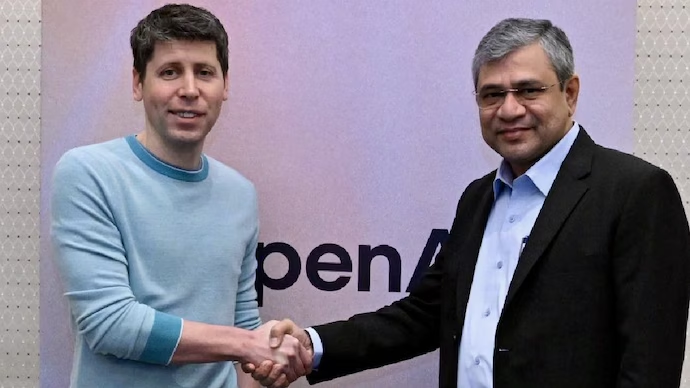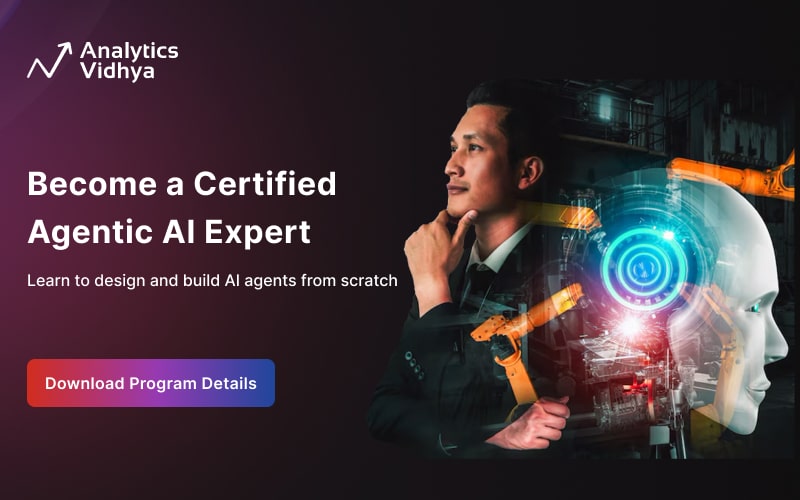Imagine a world of AI tutors. Personalized learning becomes accessible to every child. Diseases are diagnosed faster, saving lives. Scientific breakthroughs happen quicker, solving big problems. Now, picture India leading this change. In a compelling conversation, OpenAI CEO Sam Altman and India’s Union Minister Ashwini Vaishnaw discussed India’s AI strategy. They explored how India can shape the global AI landscape. From democratizing technology to tackling unique challenges, this dialogue showed how innovation meets ambition. This is the story of India stepping up as a key player in the AI race.

Let’s look at the highlights of the latest conversation between Sam Altman and Union Minister Ashwini Vaishnaw!
Key Insights
- OpenAI’s focus on democratizing technology aligns with India’s mission to make AI accessible to all, fostering a broad ecosystem of innovation.
- India’s full-stack approach to AI, from chips to applications, positions it as a potential leader in the global AI revolution.
- The cost of AI intelligence is decreasing rapidly, enabling more widespread adoption and innovation in AI applications.
- India’s unique challenges in diversity and complexity can drive global innovations in cost-effective AI models.
- OpenAI’s models are on the cusp of being powerful enough to address major challenges in healthcare and education, awaiting application development by innovators.
- AI can significantly increase the efficiency of researchers by automating tasks, accelerating the pace of scientific discovery.
- Cybersecurity is a critical area where AI advancements must be leveraged responsibly to enhance protection and prevent threats.
How is OpenAI contributing to global GDP, and what opportunities lie ahead?
With OpenAI’s rapid scaling, recent reports suggest a potential contribution of 14% to global GDP by 2030. As the CEO of OpenAI, I see immense opportunities ahead. Our focus for the next five years is on democratizing technology, making it accessible to everyone. This includes nurturing a vast ecosystem of startups and researchers. In India, we’re working on all three layers: chip design, foundational models in collaboration with OpenAI, and application layers with curated datasets to address India’s linguistic and cultural diversity. Our goal is to be rapid adopters, leveraging our digitalization success to lead in AI adoption.
What unique contributions can India make to the global AI revolution?
India is a crucial market for AI and has shown incredible progress in embracing technology. The country’s full-stack approach, from chip manufacturing to model development and applications, positions it to be a leader in the AI revolution. India’s ability to innovate and build on AI technology across the entire stack is truly remarkable. The nation’s rapid user growth and the creativity of its developers suggest that India should aim to be at the forefront of AI advancements.
How is the cost of building foundational AI models change?
The cost of staying at the forefront of pre-trained models remains high, but we’ve made significant progress in model distillation and developing smaller, more efficient models. The cost for a given unit of AI intelligence is decreasing rapidly, much faster than historical trends in hardware. While the costs to remain cutting-edge will likely continue to rise, the economic and scientific value they create is exponential. Our Stargate project exemplifies this growth, and we anticipate a continued reduction in costs, spurring an explosion of AI applications.
How will India’s foundational AI models address the country’s unique challenges?
India’s diversity and complexity present unique challenges that also offer opportunities for innovation. We believe that the innovations required to reduce the cost of AI intelligence can emerge from India, just as the country achieved cost-effective space missions. Our startups and researchers are focused on next-level innovations that could significantly reduce costs and contribute globally.
How can OpenAI’s models help bridge gaps in Healthcare and Education?
The models we’re developing are nearing the threshold of being effective enough to address significant challenges in healthcare and education. It’s now up to developers to build solutions that leverage these models. For example, AI tutors could revolutionize education, and AI-assisted medical diagnosis systems could improve healthcare outcomes. The technology is nearly ready; it’s time for innovators to build the applications that will make a difference on a population scale.
What role can AI play in accelerating scientific discovery and research?
While AI models like deep research are not yet innovators on their own, they can assist researchers by automating lower-value tasks such as literature reviews and experimental planning. This assistance could potentially double the efficiency of researchers worldwide, accelerating scientific discovery and problem-solving.
How can AI address cybersecurity and national security concerns?
As AI models become increasingly adept at software engineering, they will have significant impacts on cybersecurity. It’s crucial to focus on harnessing these advancements for good and staying ahead of potential security threats. Collaboration and proactive measures will be essential in ensuring that AI serves as a tool for enhancing security rather than posing risks.

Also Read: India’s AI Moment: Racing Against China and the U.S. in GenAI
End Note
The future of AI isn’t just about smarter machines; it’s about smarter collaboration. Sam Altman and Ashwini Vaishnaw’s conversation was a thrilling glimpse into how India and OpenAI are teaming up to rewrite the rules of the game. India’s audacious vision—democratizing AI, building foundational models, and solving population-scale problems—isn’t just inspiring; it’s a blueprint for the world.
So, what’s next? The stage is set, the players are ready, and the world is watching. Let’s see how this story unfolds.
Stay updated with the latest happening of the AI world with Analytics Vidhya News!







